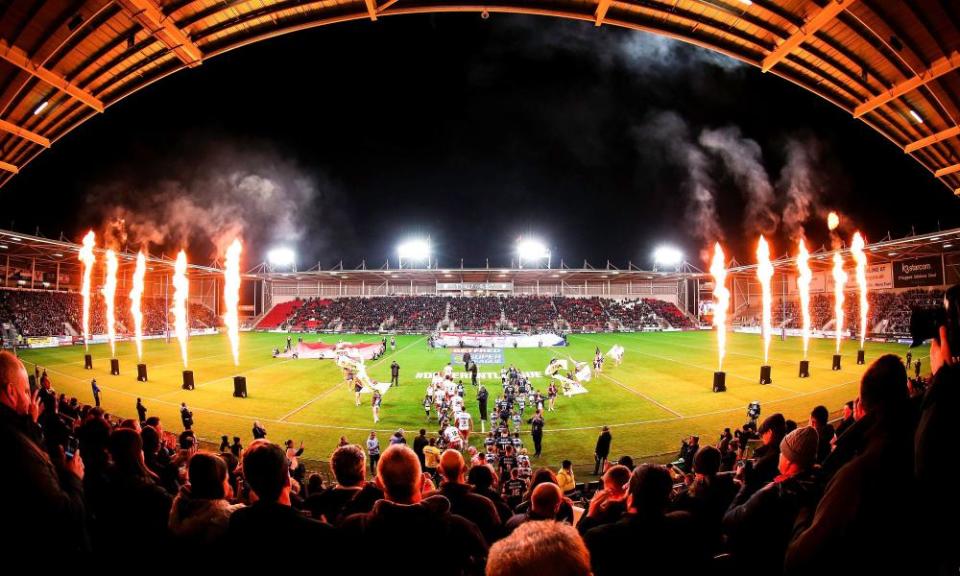Rugby League World Cup chief admits tournament could be delayed to 2022

The chief executive of next year’s Rugby League World Cup has conceded the event could be pushed back 12 months to 2022 as a “last resort”, but insists the current plan is for the event to still go ahead as planned in England next autumn. With the sporting world still in limbo because of the effects of Covid-19, Jon Dutton has admitted the tournament organisers have had to implement a number of contingency plans.
The proposals includes postponing for a year, although Dutton insists this is a worst-case scenario. “We’ve got a number of different scenarios from here, from socially-distanced games all the way through to a postponement,” he said. “But we’re in the very best shape possible 12 months out from the tournament, given the environment and the world we find ourselves in.”
Related: Leeds players keen to silence critics and build on Challenge Cup triumph
He continued: “There are different models ranging from 25% crowds to just up above 50% if that’s what we have to do. But that will all be dictated to us. The final option is postponement by a year, and moving it back, but that’s not something we’re focused on. The worst case is that it doesn’t go ahead as planned and 2022 is a busy year of sport with some big events, so that would be troublesome for us.
“We have the benefit of the next 12 months to shape our planning. We have offered fans a 100% refund guarantee if the tournament is disrupted by reduced capacities. To increase those reassurances around buying a ticket, fans can purchase tickets to the tournament through finance options too.”
Dutton appeared to rule out the possibility of playing the event behind closed doors; encouraging early ticket sales for the tournament have already been reported. “I cannot envisage that whatsoever,” he said. “As I say, we have a backup plan in place to move it back by 12 months but that’s complicated. I must reiterate that we’re in the best possible place as things stand.”
He said the final decision on what happens to the tournament will be influenced by the success of how the preparation for other major sporting events such as next summer’s rescheduled football European Championship unfold, and suggested there is a need for the country to get through what is expected to be a difficult winter before a verdict can be reached.
“The period between January and March is going to be critical,” he said, “because the first thing we have to do is look at what the world looks like. We have to be agile and adapt to the challenges that are out there, but obviously the ideal is for this to be delivered in front of full stadia.
“I still feel incredibly positive that the tournament will happen in a year’s time like we’re planning. I’m utterly realistic about the challenges we’re facing, but there’s a desire from everyone – including the government – to deliver this tournament. Perhaps by spring next year, hopefully the health conditions have improved and we can sit down and be calm and rational about it.”

 Yahoo News
Yahoo News 